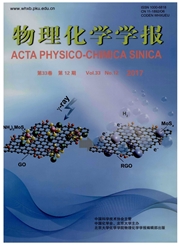

 中文摘要:
中文摘要:
考察了硅铝比、碱度、有机胺模板剂、晶化时间及温度等合成条件对ZSM-5、ZSM-57分子筛和丝光沸石之间相互转晶的影响.发现较高的碱度、较长的晶化时间有利于合成丝光沸石;较低的碱度、较高的诱导品化温度、较长的晶化时间有利于合成低硅铝比的ZSM-57分子筛;合成低硅铝比的ZSM-5分子筛则需要在能合成丝光沸石和ZSM-57分子筛的碱度区间内精确调节碱度,缩短晶化时间、降低诱导晶化温度、加入适当晶种,有利于合成低硅铝比的ZSM-5分子筛.合成条件稍微改变,会导致各种沸石之间发生转晶,晶化产物出现两种或两种以匕的品型.
 英文摘要:
英文摘要:
The crystal transformation among ZSM-5, ZSM-57, and mordenite was studied under different conditions, such as SiO2/Al2O3 molar ratio, alkalinity, n-butylamine template, crystallization time, and temperature. The results showed that higher alkalinity and longer crystallization time were of benefit to mordenite; lower alkalinity and higher induction temperature of crystallization were in favor of ZSM-57 with low n(SiO2)/n(Al2O3) ratio; alkalinity was required to be adjusted accurately to synthesize ZSM-5 with low n(SiO2)/n(Al2O3) ratio, shortening of crystallization time, decrease in induction temperature of crystallization, and the addition of seed crystal were all in favor of ZSM-5 with low n(SiO2)/n(Al2O3) ratio. A slight change in the above conditions would result in the transformation among the three crystals, and two or more crystal phases could be observed in the products.
 同期刊论文项目
同期刊论文项目
 同项目期刊论文
同项目期刊论文
 期刊信息
期刊信息
